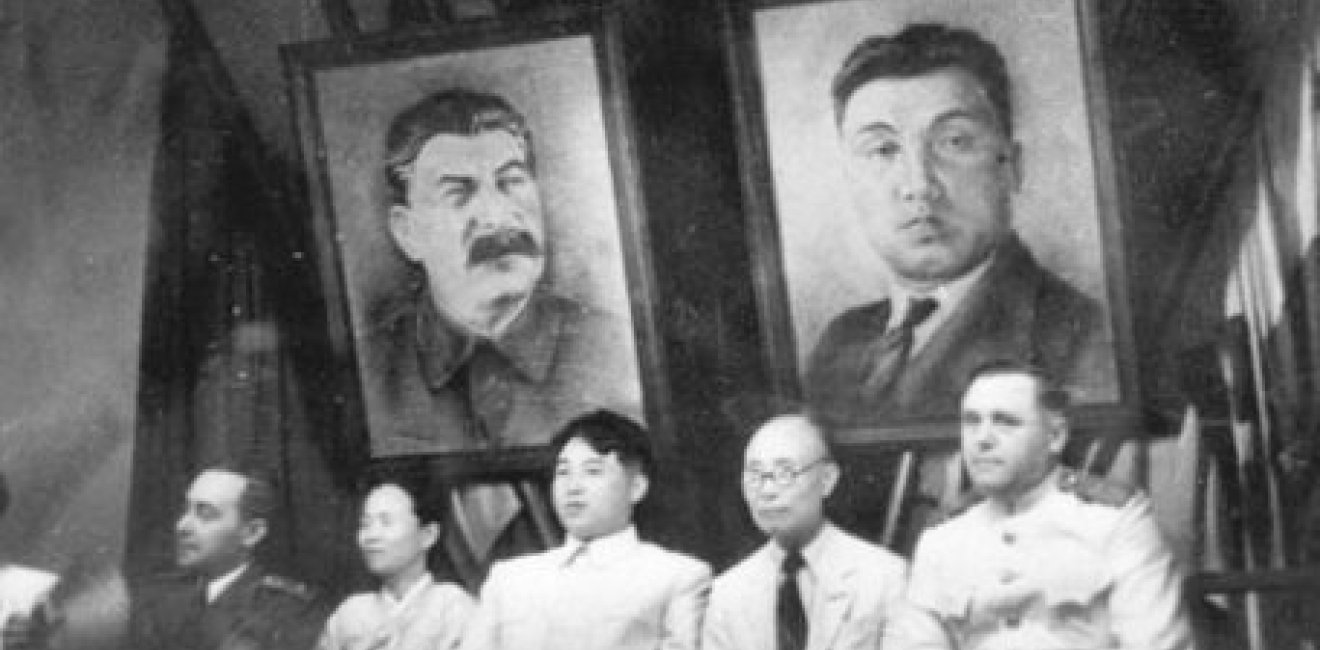The Return of Moscow in Pyongyang?
Will Moscow strengthen ties with an ex-Cold War ally? Despite a shared border, Russia has struggled to support North Korea previously.

A blog of the History and Public Policy Program
Will Moscow strengthen ties with an ex-Cold War ally? Despite a shared border, Russia has struggled to support North Korea previously.

Despite a shared border, Russia has struggled to support North Korea
Since his first day in the White House, President Trump has looked to China to freeze North Korea’s ballistic missile and nuclear weapons programs. He asked Chinese President Xi Jinping to apply meaningful pressure on Pyongyang when they met in Mar-a-Lago and Hamburg this year.
Yet when it comes to North Korea, China is not the only important regional player. Russia has recently stepped in to help Kim Jong Un’s regime. Trade between Russia and North Korea increased by 73-percent during the first two months of 2017, compared to the same period one year prior. In March, Russian officials agreed to increase the number of North Korean laborers in Russian’s timber and construction industries. In May, a new ferry line connecting Vladivostok to the North Korean city of Rajin opened.
These moves reflect Russia’s desire to strengthen ties with its ex-Cold War ally, perhaps with the intention of filling Beijing’s shoes in North Korea. Yet the question remains: can Moscow regain its status as Pyongyang’s most influential ally?
The Soviet Union was North Korea’s foremost patron, assisting Pyongyang during the Korean War and providing economic and technical assistance for Pyongyang’s reconstruction efforts. Moscow arguably played a more crucial role than Beijing in the early history of North Korea.
Yet Moscow’s relations with Pyongyang gradually waned as Beijing became Kim Il Sung’s most important ally. Moscow’s failure can be attributed to geographic challenges and Pyongyang’s “policy of balancing”—a tactic of pitting Beijing and Moscow against each other.
Both the USSR and the PRC sought to lead the bloc by garnering communist nation’s support to enhance their authority and prestige. Pyongyang gained much from this split.
North Korea attempted to maintain good relations with China and the Soviet Union, knowing that if its relations with one faltered, it was still able to receive assistance from the other. Kim Il Sung highlighted the importance of this policy in 1970 when he stated that, “We, Koreans, on our party, intend to reinforce our contacts with both elder brothers on the basis of Marxism-Leninism, and during this process we do not intend to please any of them to a greater extent than the other.”
One Romanian official stationed in Pyongyang observed: “the desire of the DPRK to have good relations with its two neighbors, the USSR and the PRC, corresponds in general with a balance of Soviet-Korean and Sino-Korean relations, respectively.”
As a result, the Soviet Union competed with China gain the favor of the first Kim regime. Yet Moscow faced an insurmountable geographic challenge: the core of its agricultural and heavy industries were located near the European continent, thousands of miles away from its border with North Korea. Long distances and high transportation costs hampered aid to Pyongyang.
During the Cold War, such challenges made it difficult for Moscow to fulfill Pyongyang’s requests. According to Eastern bloc and Soviet sources, North Korean requests for Soviet economic and technical assistance were regularly scaled back. Ri Ju-yeon, North Korea’s Deputy Prime Minister, once complained to the Soviet Ambassador that the Soviet Union “does not deliver the amount of cotton the DPRK requested and urgently needs.” When Kim Il Sung visited Moscow in 1967, his delegation asked for a delivery of 200,000 tons of grain and 400,000 tons of coking coal, but Moscow promised only 75,000 tons and 200,000 tons respectively.
Moscow’s relations with Pyongyang still face similar challenges. Though Pyongyang’s relations with Beijing have declined in recent years, Kim Jong Un seems to understand the importance of Beijing’s economic and political support, and will seek to remedy ties in the near future. In addition, the Russian Far East still faces many of the same logistical challenges that hampered Soviet aid to North Korea during the Cold War.
Even though Moscow is ramping up its relations with North Korea, Moscow’s influence in Pyongyang will remain in the shadow of China.


A leader in making key foreign policy records accessible and fostering informed scholarship, analysis, and discussion on international affairs, past and present. Read more


The North Korea International Documentation Project serves as an informational clearinghouse on North Korea for the scholarly and policymaking communities, disseminating documents on the DPRK from its former communist allies that provide valuable insight into the actions and nature of the North Korean state. Read more


The Cold War International History Project supports the full and prompt release of historical materials by governments on all sides of the Cold War. Read more



